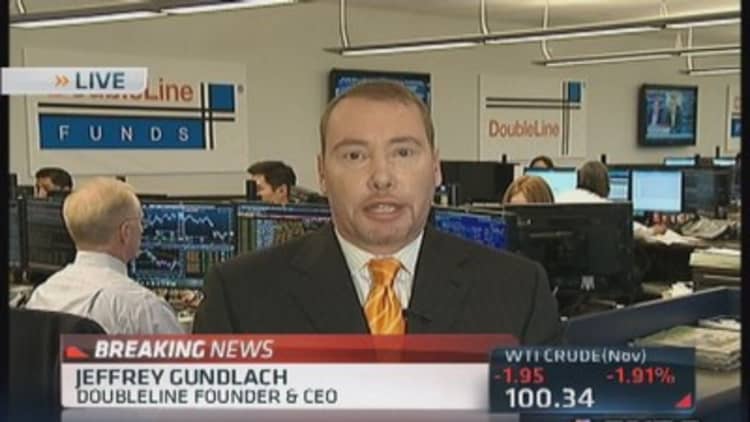After a partial government shutdown, a near-miss on a potential debt default and a Chinese ratings agency downgrade, why doesn't the U.S. get treated like an emerging market?
Pundits have compared the U.S. with developing nations for years, citing issues ranging from crumbling infrastructure to healthcare to education, but in the wake of the 16-day government shutdown and near-default on the national debt, the comparison has moved away from the fringes. Chinese rating agency Dagong cut its rating on U.S. debt to parity with Brazil, with a negative outlook.
(Read more: Brand America has been damaged: WPP CEO)
"If any other country on the planet played the government game that was just played in the States, the currency would have been destroyed and the bonds would trade up to distress levels. The only reason it didn't is no one can afford to let that happen," said James Sullivan, JP Morgan's head of Asean equity research.

"Why aren't people selling down Treasurys more aggressively than they did? Because no one can afford to let the dollar fail. And the too-big-to-fail argument, at least for me, is a driver of why it doesn't," he said, citing the dollar's status as a reserve currency.
But it isn't just the dollar's reserve currency status providing the prop.
(Read more: Sell US, buy European assets: Strategist)
"Despite all of its flaws, (the U.S.) remains the biggest, deepest and most transparent market for investors to deal in. You can't underestimate the value of transparency," said Boris Schlossberg, managing director of foreign-exchange strategy at BK Asset Management.
But that market depth means U.S. assets aren't being priced based on macro-economic fundamentals, said Dr. Marie Owens Thomsen, chief economist at Credit Agricole.
"This allows them to trade above their merits," she said.
(Read more: US rating must reflect creditor nations' view: Dagong)
For the U.S. to trade more fairly on its merits, "we need to have alternatives to U.S. financial markets. Those are coming," she added, noting she's watching the development of China's currency closely. "When the becomes convertible, things could change quickly. Come 2030, we could have a very different world financial system."

Others are unequivocal about the U.S.'s developed market status: "It's certainly not sensible to talk about the United States as a country that has profound financial vulnerability," said Ramin Toloui, co-head of emerging markets portfolio management at Pimco, which has nearly $2 trillion under management.
"Empirically, historically, there's a difference between the ability of developed countries to carry debt and emerging market countries," he said, citing factors including per-capita income and the perceived strength of institutions, as well as the dollar's reserve-currency status.
(Read more: Funds' shift away from US isn't just about the debt ceiling)
"There is a tremendous demand for holding U.S. assets," Toloui said, but added, "that is not a reason for political leaders to be complacent about economic growth or about the long-term trajectory of the debt."
Other factors also support the developed market status.
"From a soft asset perspective, it's still the best educated and most productive workforce on the planet. It's very hard to bet against that. The government has been doing its best to cause doubt about that," Sullivan said.
But he noted, from a "hard asset" perspective, the U.S. needs massive infrastructure investment.
"What's undeniably favorable for the U.S. is the level of living standards and the per capita income. After all, these things are universally very good. On that score, it's hard to compare the U.S. with an emerging economy," said Thomsen.
(Read more: Obama: Shutdown slowed economic growth, damaged US credibility)
"What's more worrying is the rate of change" on structural reforms, she said. "It's not as positive," she added.
"The countries that will win are those that undertake the most structural reform, or have the most favorable momentum of the rate of change. That momentum is much greater in Japan, China and Europe than it is in the U.S. That's what's worrying for the U.S.," she said.
— By CNBC's Leslie Shaffer. Follow her on Twitter: @LeslieShaffer1

